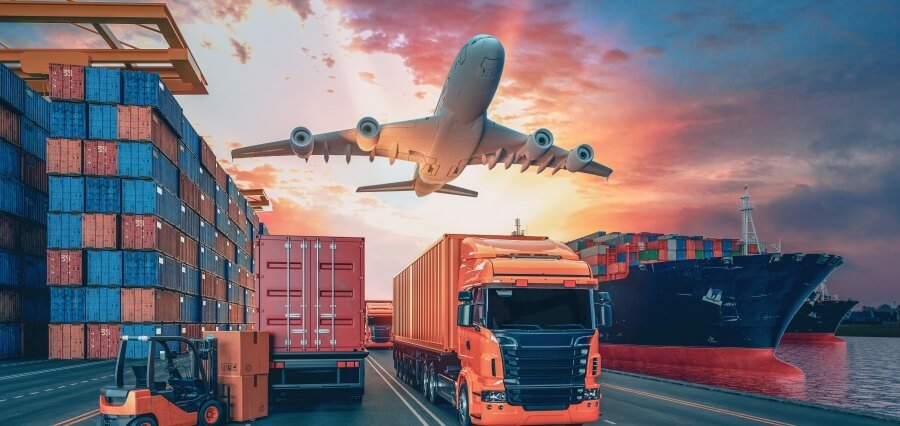#Trade Smart
Logistics plays a crucial role in the success and efficiency of global trade, serving as the backbone of the international supply chain. Its importance extends far beyond merely moving goods from one point to another; it encompasses the entire process of planning, implementing, and controlling the flow of products, services, and information across borders. Effective logistics management is essential for ensuring that global trade runs smoothly, remains cost-effective, and meets the growing demands of an interconnected world economy.
One of the primary functions of logistics in global trade is to facilitate the efficient movement of goods. This involves coordinating various modes of transportation—such as shipping, air freight, rail, and road—to ensure that products reach their destinations in a timely manner. The seamless integration of these transportation modes helps to minimize delays and reduce transit times, which is crucial for businesses that rely on just-in-time inventory systems. In a global marketplace where speed and efficiency are key competitive advantages, having a robust logistics network can make the difference between a successful trade operation and a costly one.
Moreover, logistics is instrumental in managing inventory and warehousing. By strategically locating warehouses and distribution centre’s, businesses can better manage their stock levels and respond more quickly to changes in demand. This is particularly important in global trade, where fluctuating consumer preferences and seasonal variations can significantly impact inventory needs. Effective warehousing practices not only help in maintaining optimal inventory levels but also reduce storage costs and minimize the risk of stockouts or overstocking. Advanced logistics systems often use data analytics and forecasting tools to predict demand and adjust inventory accordingly, enhancing overall supply chain efficiency.
Logistics shines in its role in reducing costs. Efficient logistics management helps to optimize transportation routes, consolidate shipments, and negotiate better rates with carriers. These cost-saving measures are vital for businesses operating in competitive global markets, where margins are often slim. Additionally, logistics providers often offer value-added services such as customs clearance, which can further streamline the process and reduce operational costs. By leveraging technology and innovation, businesses can achieve greater cost efficiencies and pass these savings on to consumers, thereby gaining a competitive edge.
In addition to cost reduction, logistics contributes to the reliability and resilience of global trade. A well-designed logistics network ensures that supply chains are less vulnerable to disruptions, such as natural disasters, geopolitical tensions, or pandemics. By implementing risk management strategies and maintaining contingency plans, businesses can mitigate the impact of unforeseen events on their operations. For instance, diversifying transportation routes and sourcing options can help to minimize the risk of supply chain interruptions. The ability to adapt quickly to changes and recover from disruptions is crucial for maintaining the continuity of global trade.
Furthermore, logistics plays a significant role in enhancing customer satisfaction. In today’s globalized market, consumers expect fast delivery times and reliable service, regardless of the distance between them and the seller. Efficient logistics ensures that products are delivered on time and in good condition, which is essential for building customer trust and loyalty. Companies that excel in logistics often offer tracking systems that allow customers to monitor their orders in real-time, providing greater transparency and improving the overall customer experience.
The environmental impact of logistics is another important consideration in global trade. As the world increasingly focuses on sustainability, there is growing pressure on businesses to reduce their carbon footprint and adopt greener practices. Logistics companies are responding by investing in energy-efficient transportation modes, optimizing routes to reduce fuel consumption, and implementing waste reduction initiatives. Sustainable logistics practices not only help in meeting regulatory requirements but also contribute to corporate social responsibility goals and enhance a company’s reputation.
Emerging as an essential function, the logistics is a vital component of global trade, influencing various aspects of the supply chain, from cost management and inventory control to customer satisfaction and environmental sustainability. Its role in ensuring the efficient movement of goods, reducing costs, and enhancing reliability cannot be overstated. As global trade continues to evolve and grow, the importance of logistics will only increase, making it essential for businesses to continually adapt and innovate in their logistics strategies. By doing so, they can ensure that they remain competitive in a rapidly changing global marketplace and contribute to the ongoing success of international trade.








